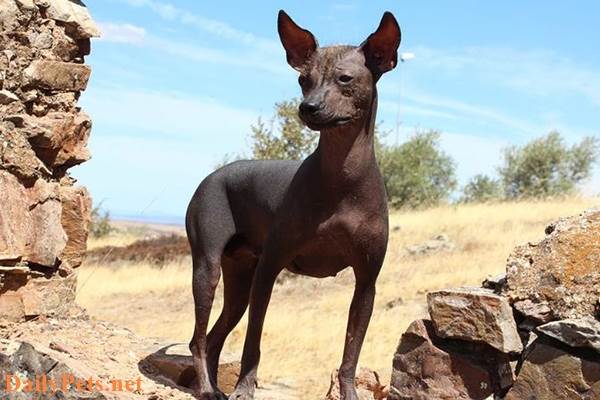To learn more about this breed, please read the article below.
Origin of the Samoyed Dog
The Samoyed dog breed originates from Northern Russia and Western Siberia. With its pristine white coat, often referred to as the “Snow Queen of the Taiga,” this breed shares several traits with wolves. It was named Samoyed because of its distinctive ability to search for food.
Characteristics of the Samoyed Dog’s Appearance
Samoyed dogs have a tidy appearance, with an average height ranging from 53 to 60 cm. Males stand at 48 to 53 cm and weigh around 20 to 30 kg, while females are 40 to 50 cm tall and weigh approximately 16 to 20 kg.

Samoyed Dog.
They have relatively large heads with prominent black noses. Their dark, sparkling eyes are deep-set, and their small ears stand erect. Their thick, glossy fur, often white with a slight wave, helps them withstand the harsh cold of the Arctic regions. Some Samoyeds may also have yellow, cream, or slightly yellowish fur. Their straight legs are covered with dense fur.
Characteristics of the Samoyed Dog’s Personality
Hardworking
Before becoming popular pets, Samoyeds served hunters and fishermen in various capacities, including pulling sleds and tending to equipment and homes. They are diligent and excel at any task assigned to them. Just give them a command and a Samoyed will follow it promptly.
Friendly
Samoyeds are incredibly friendly and sociable with everyone, especially children. They are easy for anyone to get along with, even strangers who have only seen them a few times. Therefore, they are not typically used as guard dogs.
Intelligent and Energetic
Samoyeds are highly intelligent and perceptive. They can understand human emotions through facial expressions, gestures, and movements. If you’re feeling down, a Samoyed will come up with a playful trick to cheer you up.
This breed is lively and energetic, enjoying playtime and interacting with children in spacious areas. They love running, jumping, and frolicking in large open spaces. Additionally, you can engage them in various games.
Sense of Humor
At times, Samoyeds can be mischievous and come up with many entertaining antics to make their owners laugh. Sometimes, they’ll snuggle up to you like a child and act silly. Their endearing faces are full of amusing expressions.
Caring for Samoyed Dogs
Diet of Samoyed Dogs
Samoyed dogs should receive a balanced diet in every meal, with a focus on essential nutrients, especially protein. Additionally, they should be given meats like chicken, beef, fish, and pork organs, which are low in fat, to promote their rapid growth.
Grooming and Hygiene for Samoyed Dogs
The hot and humid summer climate can be challenging for Samoyeds, given their thick fur. Therefore, regular grooming, including trimming their fur, is necessary to keep them cool and comfortable.
While daily life can be busy, you should occasionally change their environment by taking them to the park for walks, runs, and fresh air. They enjoy playing in wide-open spaces.
Regarding grooming, brushing and trimming their fur regularly to remove shed hair and prevent tangling is essential. This helps keep them comfortable and allows them to absorb more nutrients from their environment.
After bathing, thoroughly dry their fur, as wet fur can lead to skin issues, especially in humid climates.
Keeping their nails at an appropriate length is vital for active dogs like Samoyeds. Regular nail trimming helps them move, run, and release energy efficiently, reducing the risk of obesity and other health issues.
Common Health Issues in Samoyed Dogs
Hip Dysplasia
Signs of hip dysplasia include uneven toes pointing inward, slow and weak movement of the hind legs, and difficulty standing or sitting. Over time, the bones can deteriorate and degenerate. Severe cases can lead to immobility. Hip dysplasia is one of Samoyeds’s most common health issues and is challenging to treat. Samoyed puppies between 4 and 9 months old should avoid strenuous activity.
Cataracts
Cataracts cause Samoyed’s eyes to change from black to grayish-white, making them appear cloudy and reducing their vision significantly. This condition can be genetic or the result of an injury and can cause severe vision impairment. If your Samoyed shows signs of cataracts, consult a veterinarian for timely examination and treatment.
Ingrown Eyelashes
Ingrown eyelashes cause poor vision and eye discomfort in Samoyeds. This condition occurs when the dog’s long eyelashes irritate the eyes. Mild cases can be treated with medication, while severe cases may require eye surgery.
Hypothyroidism
Samoyeds suddenly gain weight in a short period, experience hair loss fatigue, and have darker skin. Their reproductive function may also be severely affected. Hormonal imbalances in the body often cause hypothyroidism. If you notice these symptoms, take your Samoyed to a veterinarian for a health checkup. With proper treatment, the condition can be completely resolved.
Important Care Considerations for Samoyed Dogs
Ensure their diet provides all necessary nutrients. Maintain regular hygiene practices. Vaccinations should be administered as required, typically annually or every three years, depending on the disease.
Please consult a veterinarian or a professional breeder for specific care guidelines and to address any individual health concerns for your Samoyed dog.
Samoyed life span
The Samoyed dog breed typically has a lifespan of about 12 to 14 years, although some individuals may live longer with proper care and a healthy lifestyle.
Like all dogs, the lifespan of a Samoyed can be influenced by various factors, including genetics, diet, exercise, healthcare, and living conditions.
Providing your Samoyed with regular veterinary check-ups, a balanced diet, regular exercise, and a loving environment can help maximize their lifespan and overall well-being. It’s essential to be aware of breed-specific health concerns and work with a veterinarian with Samoyeds experience to ensure their health and longevity.
Samoyed Dog price
The price of a Samoyed dog can vary widely depending on several factors, including the dog’s age, pedigree, breeder reputation, location, and demand for the breed. On average, you can expect to pay anywhere from $800 to $3,000 or more for a Samoyed puppy from a reputable breeder.

Keep in mind that Samoyeds are a popular and sought-after breed, which can drive up their price. Additionally, if you’re looking for a Samoyed with show-quality or champion bloodlines, you may need to pay a premium.
It’s essential to do your research and choose a responsible and ethical breeder who prioritizes the health and well-being of their dogs. Avoid purchasing from puppy mills or backyard breeders, as these sources may not provide a healthy and well-socialized puppy.
Dog prices can change over time, so DailyPets.net recommends checking with reputable breeders or rescue organizations in your area for the most up-to-date pricing information.
Additionally, consider adopting a Samoyed from a rescue or shelter, as this can be a more affordable option and provides a loving home for a dog in need.





